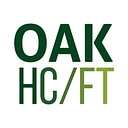
You can’t make bricks without straw.
For VillageMD, that straw is the collective experience of its founders — a second-generation family practitioner in Clive Fields, a seasoned population health and risk management operator in Tim Barry, and a contracting expert in Paul Martino. Together, they launched Village in 2013 with a vision to help PCPS practice high-quality, value-based care across their entire patient panel, not just a subset. At that time we were in the midst of the primary care 2.0 movement.
By 2015, re-inventing primary care was the topic du jour. One Medical was the 800-lb gorilla, and upstarts Oak Street Health, Iora Health, and Aledade were gaining steam with fundraises of their own. While they all shared a common goal of reducing total cost of care via primary care, each approached the challenge differently and with varying levels of value-based revenue:
· One Medical offered the premier consumer retail and digital experience, primarily for commercial insurance or employer-sponsored patients.
· Aledade managed physician-led ACOs and aligned financial incentives with physician practices by tying revenue to generated savings on Medicare patients vs. FFS volumes.
· Iora Health similarly moved away from FFS payments entirely, focusing instead on global risk and shared savings arrangements with Medicare Advantage (“MA”) plans, employers, and unions. Iora delivered its care model in retail clinics with employed physicians and multidisciplinary team of health coaches to holistically manage patient health.
· Oak Street Health further narrowed the focus to MA patients in global risk arrangements and built large community center style clinics with employed physicians and purpose-built clinical workflows for that population.
· Village’s approach, in contrast, was to do the following: (i) deliver their clinical model to all patients on their providers’ panels, regardless of payer, (ii) incentivize providers to drive high quality, and (iii) tailor the model to suit the market.
When Oak HC/FT met the Village team in 2015, the company was at an important inflection point — preparing to scale from 25 providers in Houston to more than 300 across two states, making Village one of the largest providers in its category. Early in our diligence cycle, it was very apparent that this company was far from a 2-year-old start-up. Village was being built by a veteran team with a detailed playbook based on best practices distilled from their years of cutting teeth on (i) practicing family medicine, (ii) building high quality IPAs & MA plans, and (iii) aligning payers and providers via contracting.
Across 35+ years of investing in healthcare, we at Oak have worked with the types of teams it takes to build category-definers like athenahealth or One Medical. The Village team, to us, was the one to back to re-imagine primary care. And you cannot deliver value-based care without re-imagining primary care.
Fast forward to 2020 and primary care 2.0 has undeniably arrived. One Medical went public earlier this year and set the stage for IPOs in this category. Oak Street Health recently filed its S1, propelled by $500 million of revenue with 40,000 global cap patients last year and another strong growth year anticipated ahead. Iora raised $126 million and announced that it had grown to 48 clinics (from 12 in 2015). Aledade expanded into non-MSSP risk arrangements across commercial, Medicare Advantage, and Medicaid populations and now has +350K attributed lives in those arrangements.
Village, meanwhile, has grown from 25 providers when we first invested to more than 2,800 across 1,000 clinics in nine states. Excitingly, another 500–700 Walgreens co-located PCP clinics are forthcoming following a $1B investment from the pharmacy operator. Looking ahead, Village plans to expand their model to a national scale to improve primary care access through physical, virtual and home-based care. We are very excited to see how this team will continue to transform healthcare, brick by brick.
